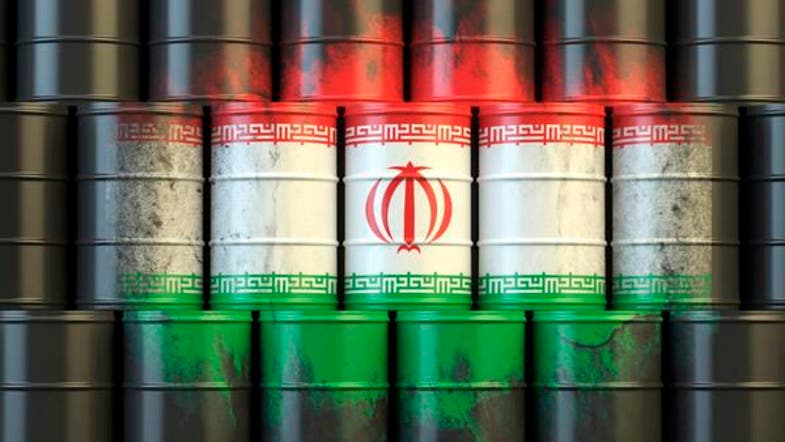
Bassam Barabandi:
The ongoing disputes surrounding the Adrian Darya I, the Iranian oil tanker previously detained in Gibraltar and now thought to have offloaded its oil in Syria, has brought renewed attention to Tehran’s supply of oil to the al-Assad régime.
Through this supply line, Iran has tightened its control over the al-Assad régime, which needs Iranian oil to demonstrate it can run the country and to provide its supporters with basic daily needs such as gasoline and electricity.
Syria has suffered from fuel crises over the years, driven by overreliance on Iranian oil. In 2015, the government’s introduction of rationing following electricity shortages provoked rare criticism from loyalists, who accused the government of corruption and being unable to run the country. This year, this crisis has worsened, with continued fuel shortages, especially during winter 2019 when millions of Syrians did not have enough fuel to cook their food or heat their homes.
These crises served as an Iranian lesson to the régime – proving that it depends on Iran to survive, not only militarily but also economically. Since losing control of the Syrian oilfields to ISIS in 2012, the al-Assad régime has been reliant on Iran for fuel. From 2013 to late 2018, Iran shipped an average of two million barrels a month to the Syrian régime. Iran allowed the régime to defer payments. As a recent report on the oil crisis written by a Middle East Institute macroeconomics expert, Karam Shaar, concludes: “Without a steady supply of crude oil from Iran, the régime of Bashar al-Assad would have faced a complete economic collapse.”
In return, the régime has granted Iran important economic, cultural and military investments in Syria. Economically, Iran has been investing in Syrian infrastructure ranging from building and managing ports to collaborating with the régime on telecommunications projects. It recently gained a contract to build 200,000 housing units in a south Damascus suburb. Culturally, the al-Assad régime has allowed Iran to promote Shiism; al-Assad issued a decree authorizing the teaching of Shiism in Syrian schools and opened the country’s first Shiite public school in 2014. Militarily, Iran not only has access to Syrian régime military bases, but satellite images from Image Sat International recently suggested that it is also constructing the largest military base in Syria, the Imam Ali compound, close to the Iraqi border.
Al-Assad has also allowed Iran to have its own militias and to establish pro-Iranian groups in Syria similar to Lebanon’s Hezbollah and Iraq’s al-Nujaba. These Iranian proxies will be too strong for any future Syrian government to combat – even if al-Assad remains in power.
And there are signs that Iranian influence in Syria is expanding. Hossein Salami, the newly appointed commander of Iran’s Islamic Revolutionary Guard Corps (IRGC), has called for the IRGC to expand against its “enemies” in Syria, while Iranian chief of staff Major General Mohammad Baqeri said that his country is building a new naval base on the Syrian coast. The Syrian régime has reportedly given an Iranian company close to the IRGC the contract to build a new port in the city of Tartus, which could be the destination for future oil shipments.
These benefits, which far exceed the direct financial profit from selling oil, explain the importance Iran placed on freeing the Adrian Darya 1 from its detainment in Gibraltar.
Tehran used all available means to try to regain control of the tanker, including bullying and threats connected to its nuclear program. It officially pledged that oil would not go to the Assad régime. But it did. The ship changed its name and flag and then headed toward Syria, contrary to all of Iran’s written pledges to the British authorities. For those who still trust Iran’s pledges, the Adrian Darya incident exposes the untrustworthy nature of the régime.
In response, the US sanctioned Adrian Darya 1 and its captain for enabling the IRGC to “ship and transfer large volumes of oil … to fund the régime’s malign activities and propagate terrorism.”
International efforts to break al-Assad’s supply line should be supported. If Iran continues to be able to move freely in Syria under the cover of supporting the Assad régime, it can be expected to try to extend its control over Syrian resources, including close to the Israeli border. The more entrenched Iran is in Syria, the stronger its hand is to blackmail the international community in any upcoming negotiations.
Preventing Iran from propping up the al-Assad régime with oil is in the long-term interests of the Syrian people and the wider Middle East because it undermines the malign Iranian project to dominate the region.
The policy of sanctions therefore must continue.
The US should also convince regional countries and the international community of the importance of finding a solution to the Syrian crisis, which restrains Iranian behavior without giving Iran financial incentives. Enriching Iran allows it to continue funding its proxies and solidify its influence across the region.
Consequently, the international community must approach the reconstruction of Syria with care. Any investment, however small, by the international community, UN, or NGOs in infrastructure or aid projects in the areas controlled by the Syrian régime will only benefit the Iranian project, especially considering it helps relieve Iran and al-Assad from sanctions pressure. The régime is not only selectively reconstructing loyal areas, but it continues to control which areas receive UN aid. For example, when it previously denied aid to rebel-held Eastern Ghouta.
Instead, alongside sanctions, the international community should press the régime to implement Security Council resolution 2254 - which calls for a political settlement in Syria and is the first step to a solution, including the withdrawal of all foreign powers from Syrian territory. Only then, and once malign Iranian influence is fully confronted, can Syria begin its reconstruction.'

No comments:
Post a Comment